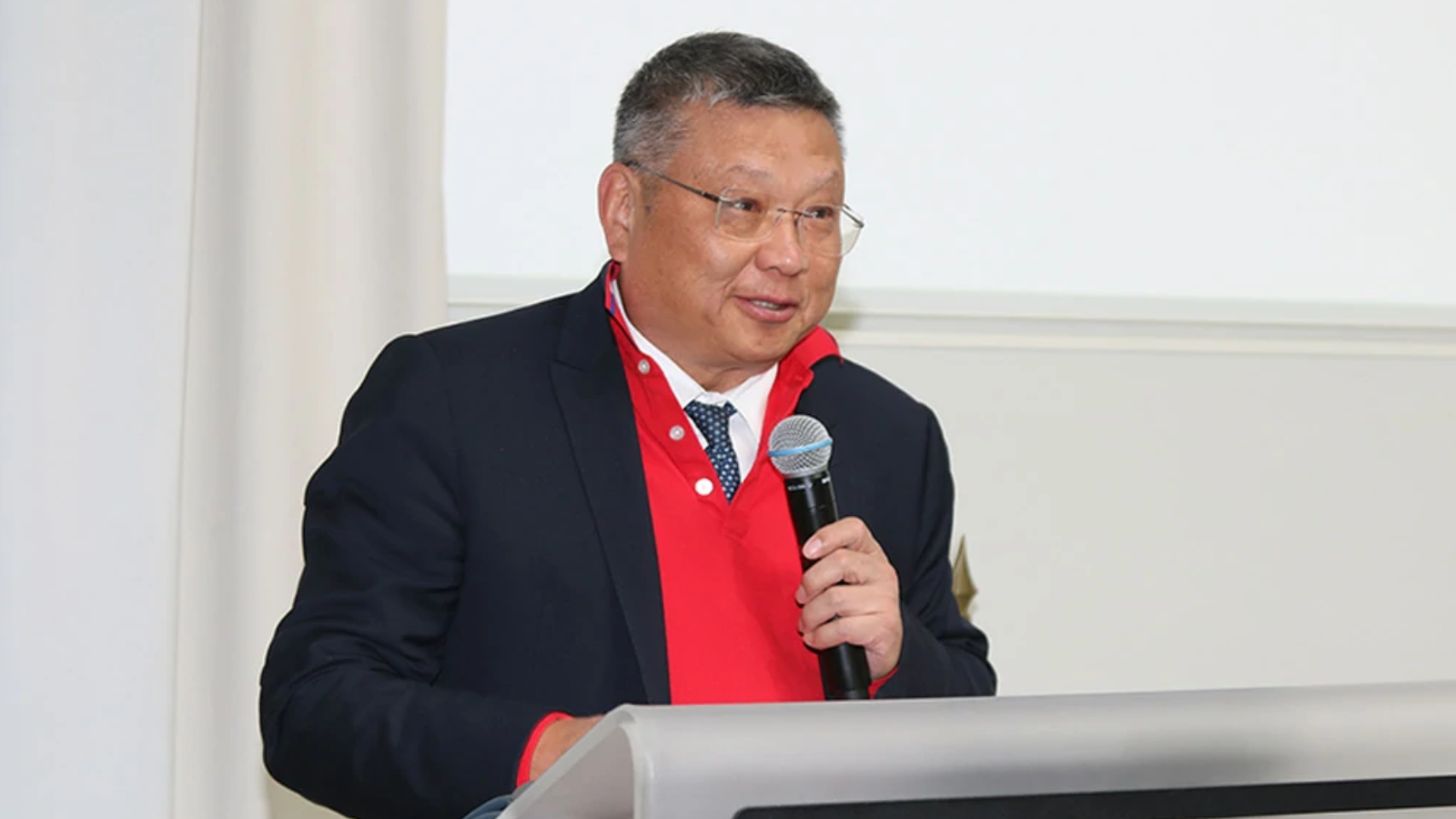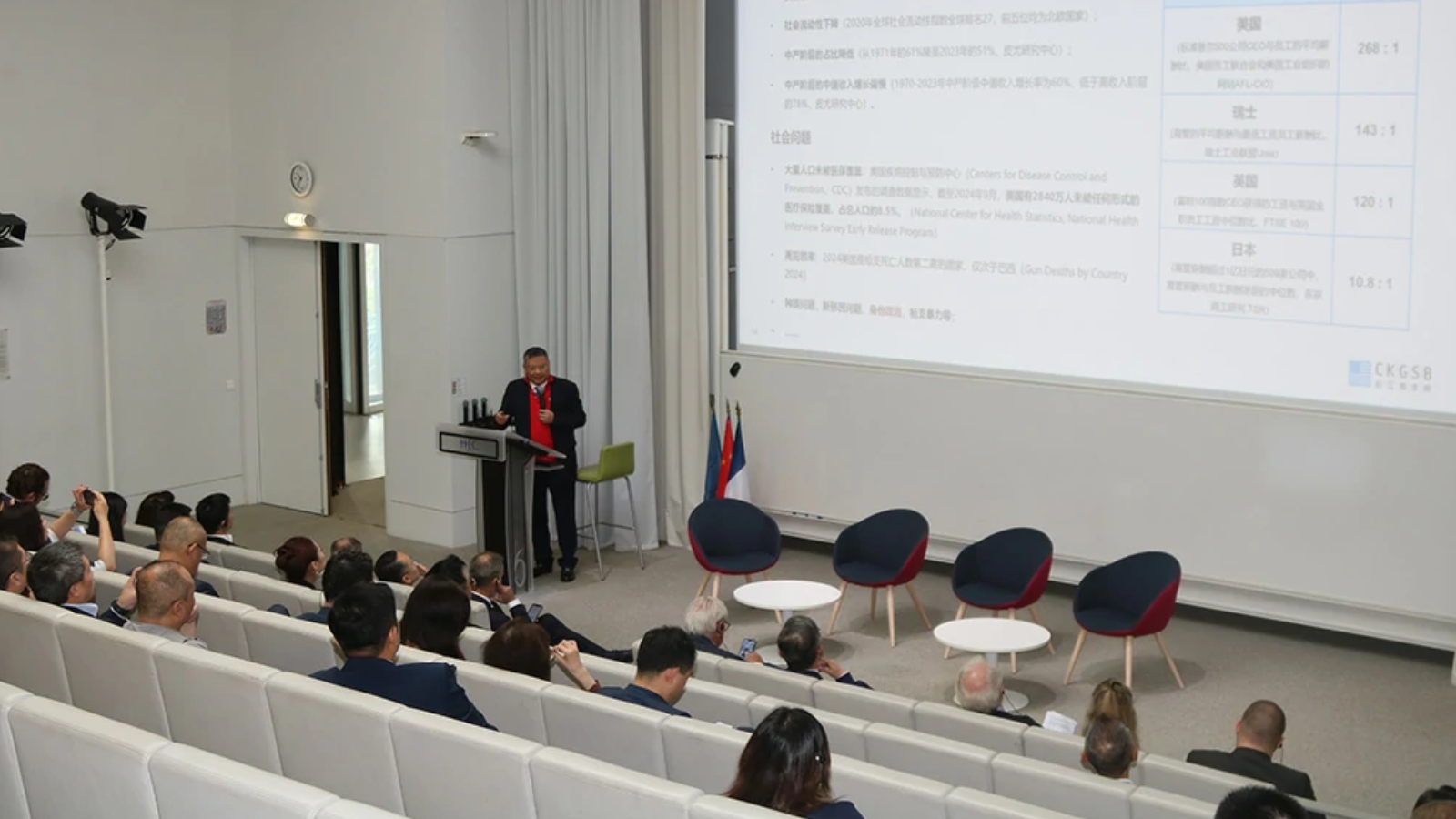Paris, France — June 27, 2025 — Professor Xiang Bing, Founding Dean of Cheung Kong Graduate School of Business (CKGSB), was invited as the first keynote speaker at the recent 2025 Sino-European Entrepreneurs Summit in Paris, analyzing the global implications of Chinese companies’ growth strategies.

The summit, held by the Sino-International Entrepreneurs Federation, marks the 50th anniversary of diplomatic relations between China and the European Union and brought together top business and policy leaders to explore future cooperation. In his speech, titled “Business Models and Innovation in Chinese Enterprises,” Professor Xiang drew comparisons between U.S., European, and Chinese growth models—underscoring the unique trajectory of Chinese innovation. He also shared strategic insights on how companies can build sustainable competitive advantages in a globalized world.
Professor Xiang noted that since 1979, China and the U.S. have been pivotal contributors to global economic growth. While the U.S. model is driven by innovation—with companies like Microsoft, Apple, Google, Amazon, NVIDIA, and Tesla—China’s growth has been powered by economic disruptions, resulting in significant progress in innovation.
“Chinese disruptive innovation is reshaping global competition,” said Professor Xiang. “From advanced manufacturing to digital platforms like TikTok, Chinese enterprises are offering globally influential, and often replicable, business models.”
He emphasized that the U.S. and Europe follow different developmental paths. The U.S. represents a model of shared prosperity driven by neoliberalism, while Europe’s success stems from its effective combination of primary wealth distribution (through robust market economies) and secondary redistribution (via extensive and transparent social welfare systems). This has resulted in Europe leading in metrics such as per capita income, social mobility, and overall well-being. However, Europe faces challenges, including a lack of generational economic renewal and limited disruptive innovation compared to China and the U.S.
Highlighting China’s manufacturing dominance, Professor Xiang pointed out that in 2024, China’s manufacturing output surpassed the combined total of the U.S., Japan, and Germany for the 15th consecutive year. Moreover, he noted that China’s business models are increasingly influential and replicable across global markets—from fintech and e-commerce in Indonesia to digital ventures in India, Latin America, Africa, and even in developed markets such as Europe and Japan.
China’s achievements in product innovation have also been significant, explained Professor Xiang. Chinese companies have made breakthroughs in renewable energy, new energy vehicles, lithium batteries, photovoltaic panels, quantum technologies, 5G, fintech, AI, robotics, drones, and the cultural sector (e.g., gaming and animation). Cross-border e-commerce giants like Temu and SHEIN, along with TikTok—now a global leader in short video platforms—have disrupted global markets. Professor Xiang noted that TikTok is the first “disruptive innovation” company from outside of the U.S. to reach such global prominence, symbolizing China’s emergence in world-class innovation.
Hosted by Sino-International Entrepreneurs Federation with the support of HEC Paris, the summit is meant to foster high-level economic dialogue and deeper cooperation between Chinese and European businesses. Distinguished attendees included Jean-Pierre Raffarin (former Prime Minister of France and Co-Chair of the Sino-International Entrepreneurs Federation (SIEF)), who delivered the opening address, Chen Dong (Chinese Minister Counselor), Henri Proglio (former Chairman and CEO of EDF and Veolia), Yannick Bolloré (Chairman and CEO of Havas Group and Chairman of the Supervisory Board of Vivendi), and Francis Bartholomé (President of MOBILIANS, France’s national automotive industry council).
